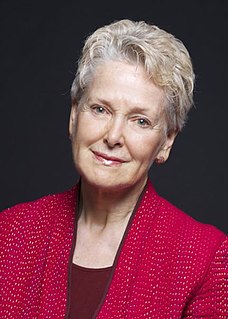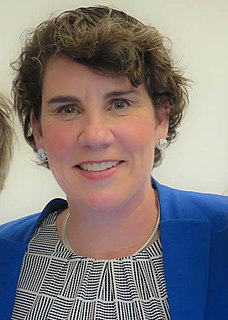A Quote by Swanee Hunt
If we look at governments around the world, we see that the higher the women's percentage is in parliament, the more funding there is for education and for health care as compared to buying arms, for example.
Related Quotes
Countries with higher levels of gender equality have higher economic growth. Companies with more women on their boards have higher returns. Peace agreements that include women are more successful. Parliaments with more women take up a wider range of issues - including health, education, anti-discrimination, and child support.
For women in my lifetime things have changed quite a bit, but not enough. They have only changed for women that have education and access to health care in the Western world. But look at the rest of the world. Still in many places, women are sold into premature marriages, prostitution, forced labor; they are forced to have children that they cannot support or that they don't want. They are abused, tortured, exploited and even killed with impunity.
There may be countries [where] there's no gender inequality in schooling, even in higher education, but [where there is] gender inequality in high business. Japan is a very good example of that. You might find cases in the United States where at one level women's equality has progressed tremendously. You don't have the kind of problem of higher women's mortality as you see in South Asia, North Africa, and East Asia, China, too, and yet for American women there are some fields in which equality hasn't yet come.
Look, you are interested in trying to make sure that governments keep a clean environment, have regard for the lifestyles of indigenous peoples, and work for fair trade rules. Well, it's exactly the same for human rights - from non-discrimination to the basic rights to food, safe water, education and health care. We are talking rights not needs. There are standards that governments have signed up to - but nobody is holding them to account.
Same reason why young women on juries are not a good idea, they don't get it. They're not in that same life experience of paying the bills, doing the mortgage, kids, community, crime, education and health care. They're like healthy and hot and running around without a care in the world... I just think, excuse them, so they can go back on Tinder and Match.com.
We need some rules changes. This is an outrage that this, the oldest democracy has now, you know, ranked - when I say ranked 59th, it means that in the percentage of women, in our national parliament, our National Congress, is now ranks 59th from the top. That means 58 countries have more women than we do in percentage wise.




































